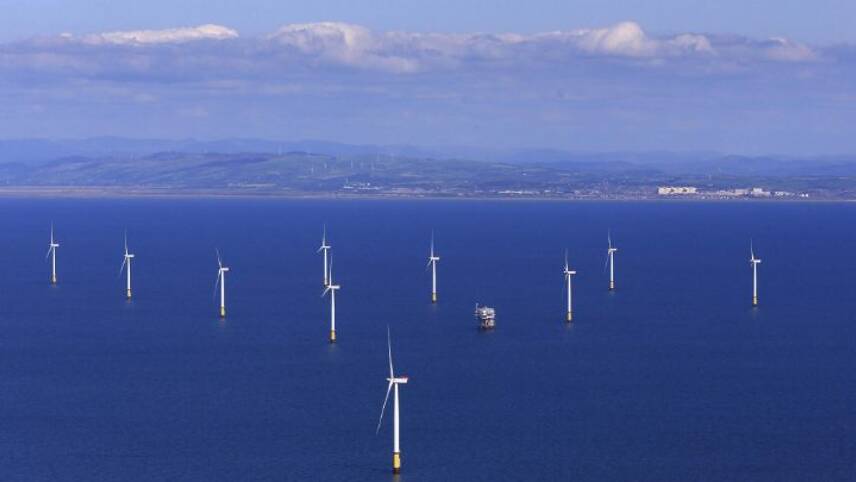Register for free and continue reading
Join our growing army of changemakers and get unlimited access to our premium content

Pictured: The world’s largest operational offshore wind farm
Published today (19 November), the latest edition of consultancy EY’s bi-annual Renewable Energy Country Attractiveness Index (RECAI) ranks 40 countries on how attractive their renewable energy investment and deployment opportunities are to investors of all sizes across the globe.
The UK rose one place from the previous (May) Index to reach seventh, with EY attributing this trend to progress in the offshore wind sector. Buoyed by the Government’s recently unveiled Offshore Wind Sector Deal, the UK’s latest auction of renewable energy Contracts for Difference (CfD) saw bidders secure supply deals with offshore arrays for less than the forecast wholesale power price and, crucially, less than the price of most fossil fuels.
The Offshore Wind Sector Deal has seen companies within the offshore wind sector commit to invest £250m over the next 11 years in exchange for participation in £557m of state subsidies. It additionally commits the offshore wind sector to boost annual exports fivefold by 2030, to reach £2.6bn.
More broadly, EY noted that investment in the UK’s onshore wind, solar, nuclear, tidal and wind sectors has continued to lag, with investors voicing concerns around the likely impacts of Brexit.
But the RECAI claims that the nation’s rise up the rankings despite these challenges “demonstrates the truly global nature” of the renewables sector, with “macro drivers on climate change trumping UK domestic issues”.
Such drivers have led many nations to set net-zero targets in line with the IPCC’s findings, the RECAI notes, with the likes of Chile, New Zealand, Costa Rica and most nations in the Nordics and mainland Europe having joined the UK in setting a net-zero goal or policy intention.
The UK Government has estimated the cost of reaching net-zero on a domestic basis at £1trn, to be invested through 2050 through a mix of public and private channels. In the RECAI, EY recommends that a greater proportion of this pot is allocated to low-carbon heat, electric transport, hydrogen power and smart grid infrastructure than present levels.
The global picture
The top six spots in this edition of the RECAI went to mainland China; the US; India; France; Austria and Germany respectively.
Within this cohort, the only movers were India and France, which switched places with each other. EY noted that France has faced “major delays” deploying offshore wind since May, with the installation of the 450MW Courseulles-Sur-Mer and 500MW Fecamp arrays both running behind schedule.
As for the top two players, the RECAI attributes the success of the US to its onshore and offshore wind markets. Despite President Trump’s withdrawal from the Paris Agreement and his reversal of much clean energy policy introduced under the Obama Administration, The American Wind Energy Association (AWEA) claims that the nation’s wind generation capacity surpassed 100GW this year.
Mainland China, meanwhile, usually comes in first place for solar PV, but this time came in second, losing out to India. According to the International Renewable Energy Agency (IRENA), 90% of the global solar sector’s workforce is based in Asia.
The biggest climber in the RECAI is Finland, which rose from 39th in May to 27th this time around, largely due to the signing of a 10-year PPA for what is due to be one of Europe’s largest unsubsidised wind farms. Similarly, Poland rose from 43rd position to 34th.
In order for good progress to continue, EY is arguing that new investment models will be needed in order to raise capital for the amount of renewable generation capacity needed to meet key climate goals.
“With such an enormous need for capital for renewables projects, numerous investment models will emerge and evolve over time,” EY Global Power & Utilities’ corporate finance leader Ben Warren said.
“Renewables projects are becoming truly industrial in scale, which creates an increased urgency to find new sources and structures for raising capital efficiently and effectively. Decarbonisation will require profound change in almost every part of the economy and the energy industry will play a central role in most, if not all, of these efforts.”
Sarah George


Please login or Register to leave a comment.